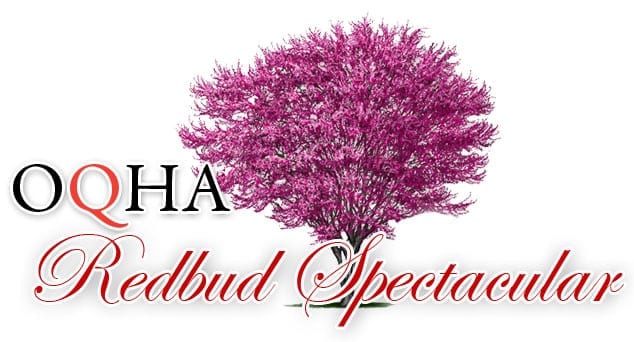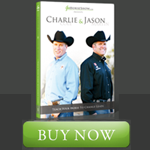All Horse Enthusiasts:
Multiple horses who returned home from the April 30-May 8 NCHA Western National Championship in Ogden, Utah this month have tested positive for the neurological form of the EHV-1 infection. The NCHA’s Breeder’s Invitational show in Tulsa, OK, scheduled to run May 14-18, was cancelled due to concerns about the recent outbreak. No horses in Tulsa for the BI have exhibited any clinical signs of EHV, however, the governing bodies for the events made the decision to cancel the shows to ensure the maximum health and safety of horses scheduled to participate until additional information on the extent of the several EHV cases reported in other state(s) can be determined.
Oklahoma Quarter Horse Association has been diligently monitoring the course of the EHV-1 disease outbreak in preparing for the upcoming Red Bud Quarter Horse Show in Oklahoma City, beginning June 1, 2011. According to Dr. Mike Herrin, Acting State Veterinarian of Oklahoma, Texas and Oklahoma do not currently have any confirmed cases of EHV-1. The state veterinary office is working to identify all horses that attended the show in Utah, and then traveled to this state. Any horse that attended that show could have been exposed to the virus and will be monitored.
The Oklahoma State Veterinary Office, The OQHA and Oklahoma State Fairgrounds management are cooperating to insure that every possible measure is taken to prevent such an outbreak from occurring at the Redbud AQHA show in June, 2011. The Fairgrounds is disinfecting each stall after every show prior to introduction of new animals. They are also providing an isolation area, in the event a fever or neurologic symtoms, develop, in order to separate any horse while at the Fairgrounds. The Oklahoma State Veterinary office, in conjunction with the Oklahoma Animal Disease Diagnostic Laboratory (OADDL) are gearing up to provide rapid test results of samples submitted for EHV-1 testing.
Finally, the OQHA is closely monitoring any news that may develop with this current EHV-1 outbreak and will keep all Red Bud Horse Show participants as informed as possible to allow them to care for their horse’s health in the best possible manner, as well as enjoy the competition and camaraderie of the Redbud!
A Fact Sheet is provided by the OQHA to address any question you might have regarding EHV-1 Myeloencephalopathy as well as a contact number for Dr. Michael Herrin, to address any other question you might have. OQHA encourages horse enthusiasts to be well informed, receive your information from your State Veterinary Office, and not fall victim to idle gossip or hear say.
—Dr. Michael Herrin, Acting State Veterinarian,(405) 522-6142
Frequently Asked Questions Equine Herpes Infections Answered by Dr. David McCarroll, DVM
1) Can people get sick from a horse with a Herpes infection?
Answer: NO. Only horses are affected.
2) What are Equine Herpes Infections?
Answer: Horsemen are more commonly familiar with the term “Rhinopneumonitis” or “Rhino” which are a group of equine herpes viral infections that affect the horse. There are 5 different EHV’s that can affect the horse. EHV-1 and EHV-4 are the most significant. In the foal, the Equine Herpes Virus (EHV) causes a severe pneumonia. In young horses, EHV causes a milder upper respiratory infection. In the mare, Rhino can cause abortion. On rare occasions, a neurologic form of EHV infections develops. It is the result of a mutant strain of EHV-1 attacking the vessels of the brain and/or spinal cord leading to interrupted function and/or cell death of the neuronal tissue.
3) When should I vaccinate my horse for Rhino?
For trail ride, show or race horses, at least 2 weeks prior to exposure with large groups of horses is recommended. Re-vaccinating a well protected horse in the face of a potential new exposure to EHV is probably not necessary. Vaccinating any closer than 2 weeks prior to exposure won’t be helpful and may be harmful as there won’t be enough time for the horse to develop a protective immunity.
4) What about the use of immunostimulants?
For added protection, they are probably helpful. For treatment of an already developed infection, they can be detrimental.
5) Will the recent EHV-1 infection in Utah affect Interstate travel with horses?
Currently, that is not the case. But it is always advisable to get your health certificate from your veterinarian in plenty of time prior to travel if there is a need for any unforeseen, new required testing to take place.
6) My horse was at a show last week and is now running a fever. What should I do?
Isolate the horse immediately. Call your veterinarian for diagnostic testing and treatment. Take the temperature of the other horses in your barn twice daily and isolate them also if they come down with a fever or other symptoms.
If you have another question about EHV-1 (Rhino) infections,
E-mail me at [email protected]
Thank you.
David McCarroll. DVM








